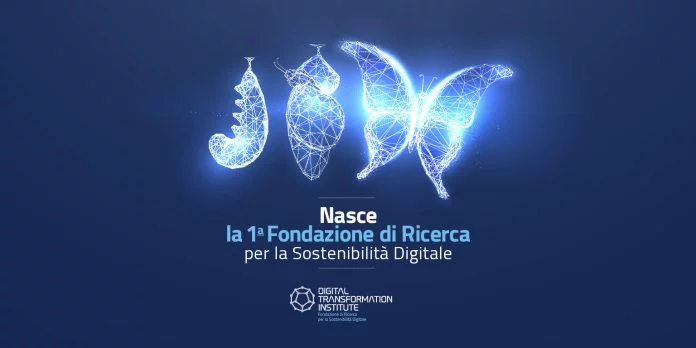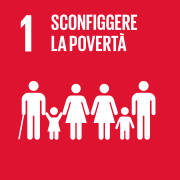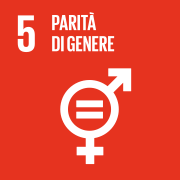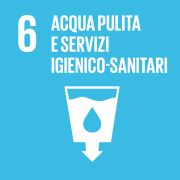
Today we celebrate Earth Day. One month and two days after the spring equinox, for the past 51 years, 193 countries have stopped to reflect on the health of our planet and the importance of preserving it intact for future generations.
Indeed, there is no sustainable development if this development does not guarantee that those who will come after us will be able to pursue their own goals in satisfying their needs. And to do this, future generations need one simple, important element: a healthy Earth. We do not know nor can we know what the social rules and models will be in the future, we do not know nor can we know what the economic dynamics will be, but what we do know is that whatever the social and economic models will be 10, 50, 100 years from now, we have a duty to preserve the planet in such a condition that future generations will be able to build their economy and their society relying on natural resources similar to those available to those who came before them.
It is not (only?) about being environmentalists. It is not (only) about being mindful of nature. It is about being responsible to our children and their children. It is – ultimately – about realising that we are the ones who need to leave the Earth in as similar a condition as possible to how we found it in order to give our species a future.
One must not make the mistake of going in the direction of extreme preservation typical of the degrowth models characterising what is called strong ecocentric sustainability, but to realise that the climate crisis and pollution do more damage to humans than to the environment. In other, cruder, terms: if we became extinct, the earth would take relatively few years to overtake us. It has already happened with other species: it could happen with ours. An oscillation of about ten degrees and humanity would no longer be as we know it. The Earth, as it has done in the past, would adapt. Indifferent to human destinies.
That is why ‘repairing’ the Earth, which is the theme of this year’s Earth Day, is more our problem than the Earth’s. And this, too, often eludes many of us.
A symbolic date, certainly, but one that marks a moment to reflect not only on the Earth’s state of health, but also and above all on those who inhabit it. And, from our point of view, to reflect on how digital can be a useful – indeed indispensable – tool for improving it.
This is why we have chosen this date to announce theevolution of the Digital Transformation Institute into a Recognised Research Foundation:
- to remember that preserving the planet serves us more than the planet;
- to remind that a balanced condition of the environment is not indispensable to the environment, but to mankind in order to develop social and economic models compatible with the improvement of our living conditions;
- to highlight how digital technology is one of the most powerful tools for ‘repairing’ our planet to make it fit for our children;
- To understand together how we can help determine the direction of technological development so that it meets environmental, economic and social sustainability requirements.
We used Earth Day to have a date on which to reflect together – from our point of view – on what is happening in the world. But also to have a date on which we commit each year to take stock of what we have been able to do as a Foundation in pursuit of what is our goal: to promote and support the development of digital sustainability.
Today is certainly not a starting point for us. The Digital Transformation Institute has been active in a structured way since 2016. In 2018, we chose to “rethink” Tech Economy from a sustainability perspective by creating Tech Economy 2030. In 2019 we consolidated our vision in the Manifesto for Digital Sustainability, which is still our reference today. In 2020 we published the book Digital Sustainability with the institute’s publishing house, one of the first texts (certainly the first in Italy) to systematically develop a link between sustainability and digital in a systemic dimension.
But if this is not a beginning, it is certainly an important turning point. The institutional dimension of the Foundation – the first in Italy to deal explicitly with digital sustainability – allows us to give greater incisiveness to our work, to bring together partners of different natures in a structured manner, and to interact with organisations, companies and institutions with greater strength and effectiveness. It is also a responsibility of which we feel the weight and take up the challenge with enthusiasm.
A challenge made possible by the people who in recent months have contributed to getting us to where we are, by the universities with which we have set up collaboration and research paths, and by the companies that, believing in us, are making all this possible.
A challenge that we are proud to take up and that we must win.
We have a demanding research programme, which we will tell you about in the pages of Tech Economy 2030 over the next few days and which we will announce as a preview next Saturday on SkyTG24 during the episode of Progress, a programme hosted by the excellent Helga Cossu, with the very first research data that will be presented during a conference we are planning for 20 May: Italians and digital sustainability: what they know and what they think about the relationship between sustainability and technology (BTW: registration is open on Eventbrite!).
But the research will be flanked, as we have always done, by communication, advocacy and training activities for young people. And it is no coincidence that, with regard to this last point, today we have the first appointment of the 2021 edition of the ROLS programme –‘Rompiamo Le Scatole‘, developed in partnership with ACI Informatica and aimed at developing digital awareness in high school students. A theme that, in the era of COVID-19, is as central as ever.
In short: for us Earth Day represents and will represent over the years the date to celebrate more than an evolution a real revolution. A sustainable revolution in the name of digital.
Thank you all, and good work!
















